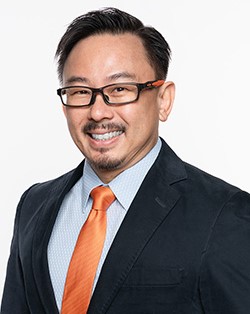Head of Department Message

It is with great pride and a deep sense of privilege that I take on the role as the 7th Head of the Department of Microbiology and Immunology. The origins of the Department, formerly called the Department of Microbiology, began in 1925 with the endowment of a Chair of Bacteriology in the King Edward the VII Medical School of the University of Malaya by the Rockefeller foundation. The Department of Microbiology was formed by the merger of the Departments of Parasitology and Bacteriology in 1977, under the leadership of Professor Viqar Zaman. From its inception, the Department played a pivotal role in teaching both medical and science students. In the last two decades and under the able leadership of my predecessors, the Department has continued to achieve new heights in education and research excellence. In 2015, under the headship of Professor Nicholas Gascoigne, the name of the Department was changed to the Department of Microbiology and Immunology to better reflect the scope and strengths of our educational and research activities.
Today, our faculty represent an eclectic mix of talented academics from diverse cultural backgrounds and nationalities. Our staff pursue their research interests within two major School-led programmes, the Infectious Diseases and the Immunology Programmes. The Department is internationally recognized for interdisciplinary research into virology, bacteriology, protistology, and anti-infectives. Our investigators are also global experts on immune cell signalling, cancer immunology, antibody engineering and atherosclerosis research. A prominent area of strength is in host-pathogen interactions, which combines the unique expertise of researchers from the infectious diseases and immunology research programmes. Our research groups consistently publish on both fundamental and applied biomedical research in leading scientific journals, including Nature, Nature Immunology, Nature Communications, Science and Science Translation Medicine. Another testimony to research excellence is the ability of our Principal Investigators to win large competitive research grants from national-level funding agencies.
Our faculty teach microbiology and immunology topics to medical, dental, nursing and life science students. In the post-COVID-19 era, we have had to adapt to the complex demands of online learning. In July 2020, the Department organized the world’s first comprehensive education webinar series on the biomedical aspects of COVID-19, reaching out to attendees worldwide to educate on the science of the disease. The formation of the Department Educational Excellence Programme (DEEP), led by academics, administrative and laboratory staff, seeks to leverage on educational technologies to improve student engagement and learning experience. DEEP will facilitate the development of online educational courses on both advanced biomedical technologies and core microbiological topics for international and regional students respectively.
The global pandemic has pushed us into a New Normal that is fraught with both challenges and opportunities. As a Department of Microbiology and Immunology, we have a moral and scientific duty to contribute towards a better understanding of infectious diseases, their mechanisms, treatments and prevention through meaningful research and educational initiatives. I am confident that we will achieve these goals with the dynamic, collegial and collaborative colleagues in our midst.
Associate Professor Kevin SW Tan
Head, Department of Microbiology and Immunology
1 August 2020
